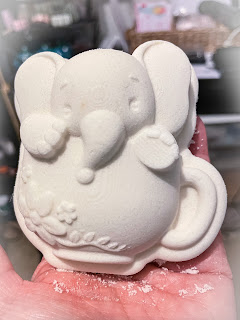Is your handmade soap drying on your skin?
You may have read my last blog on Goat Milk Soap vs Other Handmade Soap, where I tried to dispel the belief (or I hope I did) that only goat milk soap is ph balanced for skin, therefor it is better than any other handmade soap. Goat Milk is the same ph as human skin, however, ALL handmade soap has a ph of 7 to 10, period, end of sentence.
Now, some soap can be too drying. There could be a combination of reasons why.
The recipe that the maker uses makes a world of difference. Coconut Oil, for example, by itself is very drying to your skin because it has a high cleansing value.... more info on that below.
There are ways to combat that, even with pure coconut oil soap. The maker can superfat their recipe. What this means is that they add extra "fat" or oil, or less lye to their recipe so that there is some extra oil that hasn't bound to the lye during saponification. This may provide more moisture to your soap.
The maker can also use different oils and additives that are more skin nutrient.
Lets talk oils...
Each oil has it's own SAP value, or saponification value. The SAP value determines how much lye is needed to bind with that specific oil to make soap. (There are many documents/calculators on line to show you the SAP values of soap, that can also be downloaded.)
And then, there are some oils that are more cleansing than others, like coconut oil. Now, I'm sure you're thinking, well isn't soap supposed to be cleansing? Well yes. But, too cleansing can strip away your skins natural moisture which means dry skin... see where I'm going with this?
So, as a maker, I want a balanced bar; one that isn't too drying, but I want it cleansing. One that's moisturizing, but doesn't leave an oily residue behind. And, one that is bubbly and full of lather but doesn't leave a lot of soap scum in your shower or tub (which if I'm honest, all soap does to an extent).
I do use coconut oil in my soap. I use it because it is very cleansing, it creates a beautiful lather and makes a nice hard bar of soap.
I also use RSPO certified sustainable palm oil, which has other controversies of it's own... but that's for another day. I use it because, paired with coconut oil, they create those beautiful bubbles, and palm oil is very smooth and creamy, and it makes a nice hard bar of soap.
I use olive oil, which, first of all, is easy to come by for anyone. And, it moisturizes the skin and creates a beautiful lather.
I use castor oil. This oil is very thick, pulls moisture to the skin, and paired with coconut oil, you get some amazing bubbles. With this oil, a little goes a long way. If you use too much, the soap will be soft and sticky, and nobody wants a sticky bar of soap.
I use certified fair trade shea butter for it's moisturizing properties. It feels amazing on your skin all on it's own too.
Lastly, I use hemp seed oil. It's a great source of fatty acids and locks moisture into your skin.
I do have soaps that I used Sweet almond oil instead of hemp. It's a lightweight oil full of fatty acids and locks in moisture similar to hemp. I stopped using it mostly because of the allergen possibilities.
Now, additives...
I use milk powders. They actually add a cleansing power to your soap, as well as adding a little extra milk "fat" and add to a creamy silky lather.
I use clays, mostly kaolin clay. This adds a slip to the bar, absorbs any extra oils, and anchors scent in the soap.
Lastly, I use sodium lactate (basically a liquid salt) in my soap. It helps to harden the bar of soap, helps make it last longer, and is an extremely effective humectant, helping to strengthen the skin moisture barrier.
With all of this being said, I've tried to make a well balanced bar of soap for everyone to love; which I hope you do :)
I also hope that this information was informative and helpful.



Comments
Post a Comment